Supercharge Your Health with Hawthorn: Everything You Need to Know

Introduction
What is Hawthorn?
Hawthorn is a flowering shrub belonging to the Crataegus genus, commonly found in temperate regions of the Northern Hemisphere. Its delicate white flowers bloom in the spring, followed by bright red berries known as haws. Traditionally, hawthorn has been cherished not just for its ornamental beauty but for its numerous health benefits. Many herbalists and practitioners of natural medicine regard it as an invaluable ally for heart health. Imagine walking through an old countryside, the scent of hawthorn blossoms wafting through the air. This may remind you of simpler times when nature’s bounty provided remedies for ailments. Hawthorn is often praised for its ability to support cardiovascular function, making it a staple in many herbal remedies.
Historical Use of Hawthorn in Health
The historical use of hawthorn dates back centuries, with evidence of its use in ancient Greece and Rome. Renowned physician Hippocrates utilized hawthorn berries in his practice. In medieval Europe, hawthorn was widely considered a protective herb, believed to ward off evil spirits and promote overall well-being. Key points about hawthorn’s historical significance include:
- Medieval Herbalism: Frequently mentioned in herbal texts, it was a favorite for treating heart ailments.
- European Folklore: Associated with love and protection, it was often planted around homes to symbolize safety and security.
- Traditional Chinese Medicine: Utilized for digestion and cardiovascular health, showcasing its versatility.
In modern times, these ancient traditions have paved the way for scientific research, reaffirming hawthorn’s place in contemporary herbal medicine. By understanding its rich history, one gains a deeper appreciation for this remarkable plant and its potential when included in health regimens.
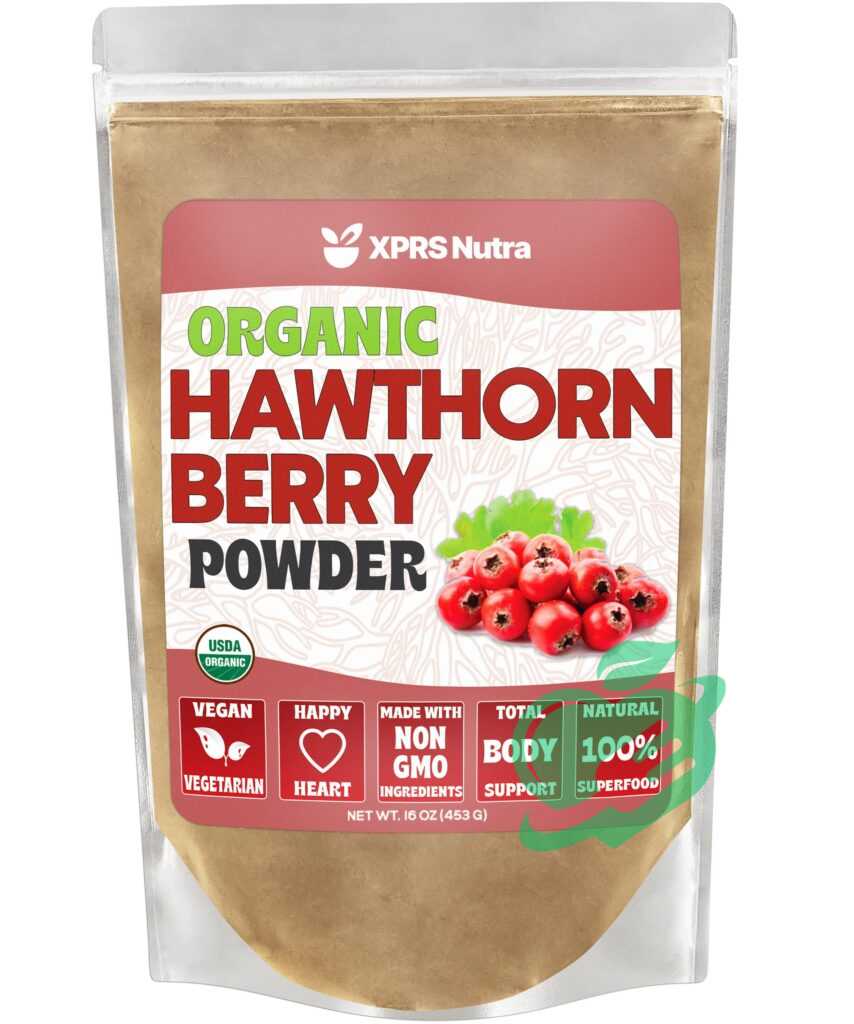
Nutritional Benefits of Hawthorn
Vitamins and Minerals in Hawthorn
When diving into the world of hawthorn, one quickly discovers a treasure trove of nutrients packed into its blossoms and berries. Many health enthusiasts appreciate that this humble shrub boasts a variety of vitamins and minerals essential for maintaining optimal health. Think about it: Nature often provides us with what we need to thrive. Hawthorn is particularly rich in:
- Vitamin C: Vital for immune function and skin health.
- B Vitamins: Important for energy production and brain function.
- Minerals: Such as magnesium, potassium, and calcium, which are crucial for heart and muscle health.
For instance, a warm hawthorn tea not only soothes the soul but also delivers a healthy dose of these nutrients, making it a delightful addition to any wellness routine.
Antioxidant Properties of Hawthorn
Beyond vitamins and minerals, hawthorn is celebrated for its impressive antioxidant properties. Antioxidants are compounds that help fight oxidative stress caused by free radicals in the body, which can lead to chronic diseases. Some key antioxidants found in hawthorn include:
- Flavonoids: Promote heart health by improving blood circulation.
- Proanthocyanidins: Known for their anti-inflammatory effects, contributing to overall cardiovascular wellness.
Personal anecdotes reflect the positive experiences many have shared after incorporating hawthorn into their diets. For example, one individual noticed a significant improvement in their heart health and energy levels after drinking hawthorn extract regularly. This highlights how a simple addition like hawthorn, rich in essential nutrients and powerful antioxidants, can lead to enhanced well-being. By including it in daily routines, individuals can harness its remarkable nutritional benefits effectively.
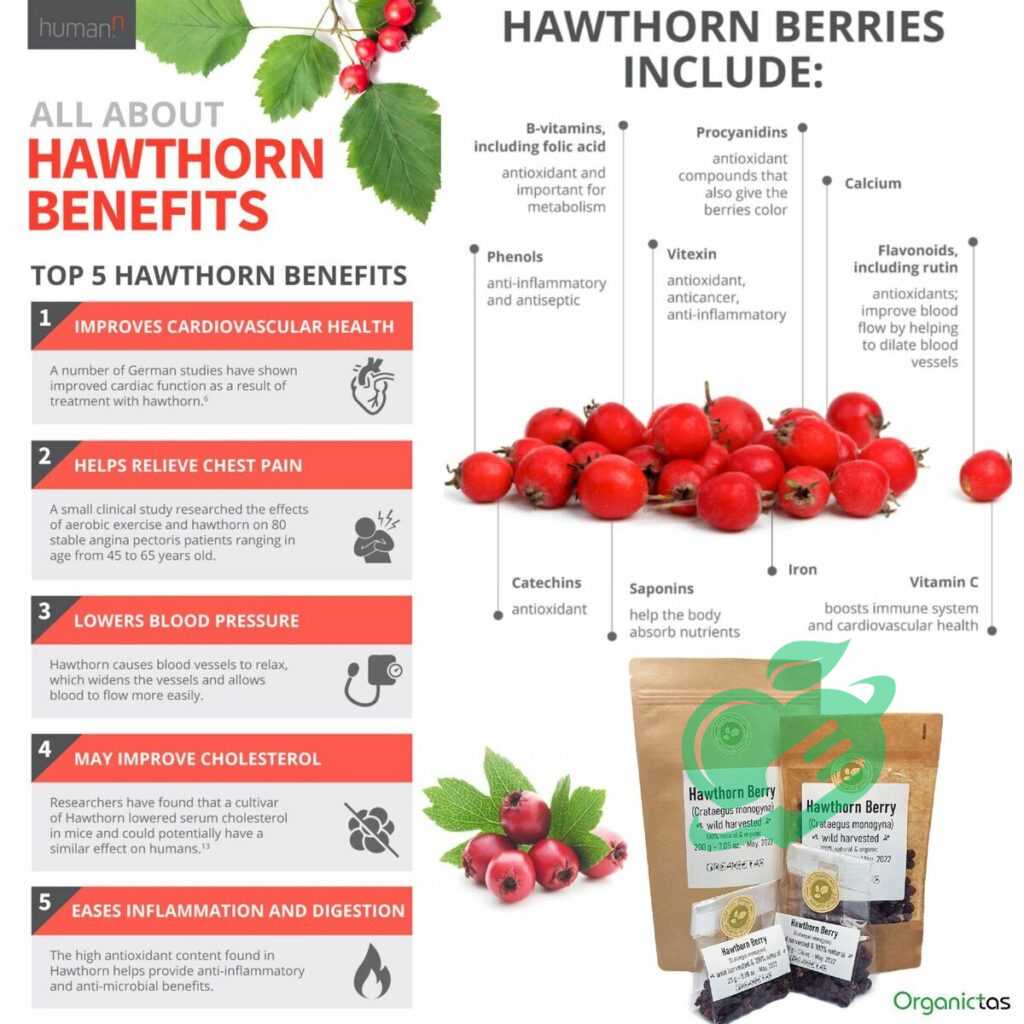
Health Benefits of Hawthorn
Cardiovascular Health Support
Building on the nutritional benefits mentioned earlier, hawthorn is particularly revered for its powerful role in cardiovascular health. Its rich composition of flavonoids and organic acids helps strengthen the cardiovascular system. For those looking to take proactive steps towards heart health, hawthorn has become a popular choice. Individuals often share stories about feeling more invigorated after incorporating hawthorn into their daily regimen. Whether through teas, supplements, or extracts, consumers frequently report improvements in their heart function and overall stamina. Key health benefits for the heart include:
- Enhanced Blood Circulation: Hawthorn dilates blood vessels, leading to better oxygen flow throughout the body.
- Supportive in Heart Failure: Some research indicates that hawthorn may improve symptoms associated with heart failure, helping individuals feel more energetic.
Blood Pressure Regulation
Another significant advantage of hawthorn is its potential to help regulate blood pressure. Hypertension, or high blood pressure, affects millions worldwide, often leading to severe health complications. Hawthorn offers a natural approach to support heart health and balance blood pressure levels. Research has shown that hawthorn can help:
- Lower Blood Pressure: By relaxing blood vessels and reducing overall strain on the heart, hawthorn may support a healthy blood pressure range.
- Balance Heart Rate: Those with irregular heart rhythms might find hawthorn beneficial, promoting a more stable heartbeat.
Anti-inflammatory Effects
Hawthorn’s anti-inflammatory properties add another layer to its health benefits. Chronic inflammation can be a silent culprit behind many health issues, including cardiovascular diseases. Incorporating hawthorn can assist in combating this. Many users have expressed relief from inflammatory conditions, experiencing reduced discomfort and improved quality of life. The anti-inflammatory effects are attributed to:
- Flavonoids: These work to reduce inflammation in blood vessels and other tissues.
- Polyphenolic Compounds: Known to help lower inflammation markers in the body.
In summary, hawthorn’s multifaceted health benefits make it a worthy consideration for anyone looking to enhance their heart health, regulate blood pressure, and reduce inflammation naturally. By embracing these properties, individuals are taking another step toward holistic well-being.
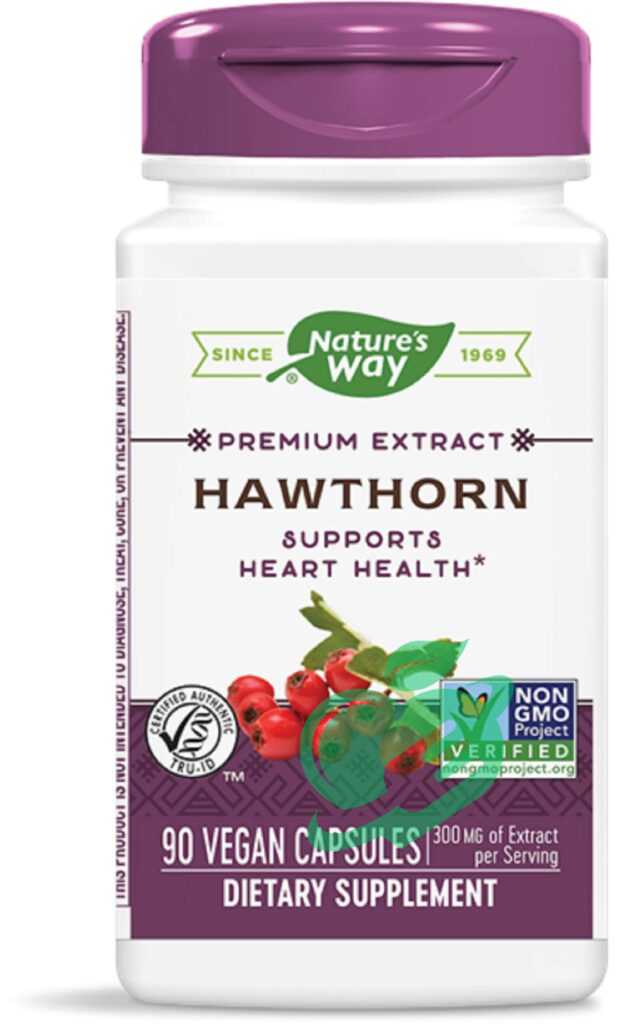
Forms of Hawthorn Consumption
Tea
Now that we’ve explored the impressive health benefits of hawthorn, let’s dive into the various forms of consumption. One of the most cherished methods is hawthorn tea, a delightful brew enjoyed by many for its rich flavor and health-promoting properties. Imagine curling up with a warm cup of hawthorn tea after a long day. Its subtle floral notes are not only comforting but also packed with nutrients from the plant. Making hawthorn tea is simple—just steep dried hawthorn flowers or berries in hot water for about 10 minutes. Many people enjoy adding honey or lemon for an extra touch of flavor and benefits. Benefits of hawthorn tea include:
- Gentle on the stomach: A great entry point for those who are new to herbal remedies.
- Hydrating: A lovely way to ensure you’re staying hydrated while enjoying natural health benefits.
Read also : Headaches on Repeat: A Guide to Your Daily Struggle
Extracts and Supplements
For those seeking a more concentrated form of hawthorn, extracts and supplements are widely available. These products come in the form of capsules, powders, and liquid extracts, making it easy to incorporate into a daily health regimen. Many users find that supplements offer a quick and convenient way to experience hawthorn’s benefits without the preparation involved in making tea. Common pros include:
- Standardized dosage: Allows users to easily control their intake.
- Adaptable to lifestyle: Simple to take on the go, perfect for busy lifestyles.
Tinctures
Another popular option is hawthorn tinctures, which are concentrated liquid herbal extracts made by soaking the plant’s berries, leaves, and flowers in alcohol or vinegar. Tinctures may appeal to those who prefer a potent delivery method. Tinctures can be easily mixed into water or taken directly under the tongue. Personal anecdotes reveal that many users appreciate how quickly the body absorbs tinctures, resulting in immediate effects. Key aspects of tinctures include:
- Potency: Usually more concentrated than other forms, offering quicker results.
- Long shelf-life: Ideal for those who want to keep their natural remedies accessible.
In summary, regardless of how one chooses to consume hawthorn—be it as tea, extracts, or tinctures—there’s an option to fit every lifestyle and preference. Embracing these various forms allows individuals to maximize the remarkable benefits of this powerful plant in ways that align with their daily routines.
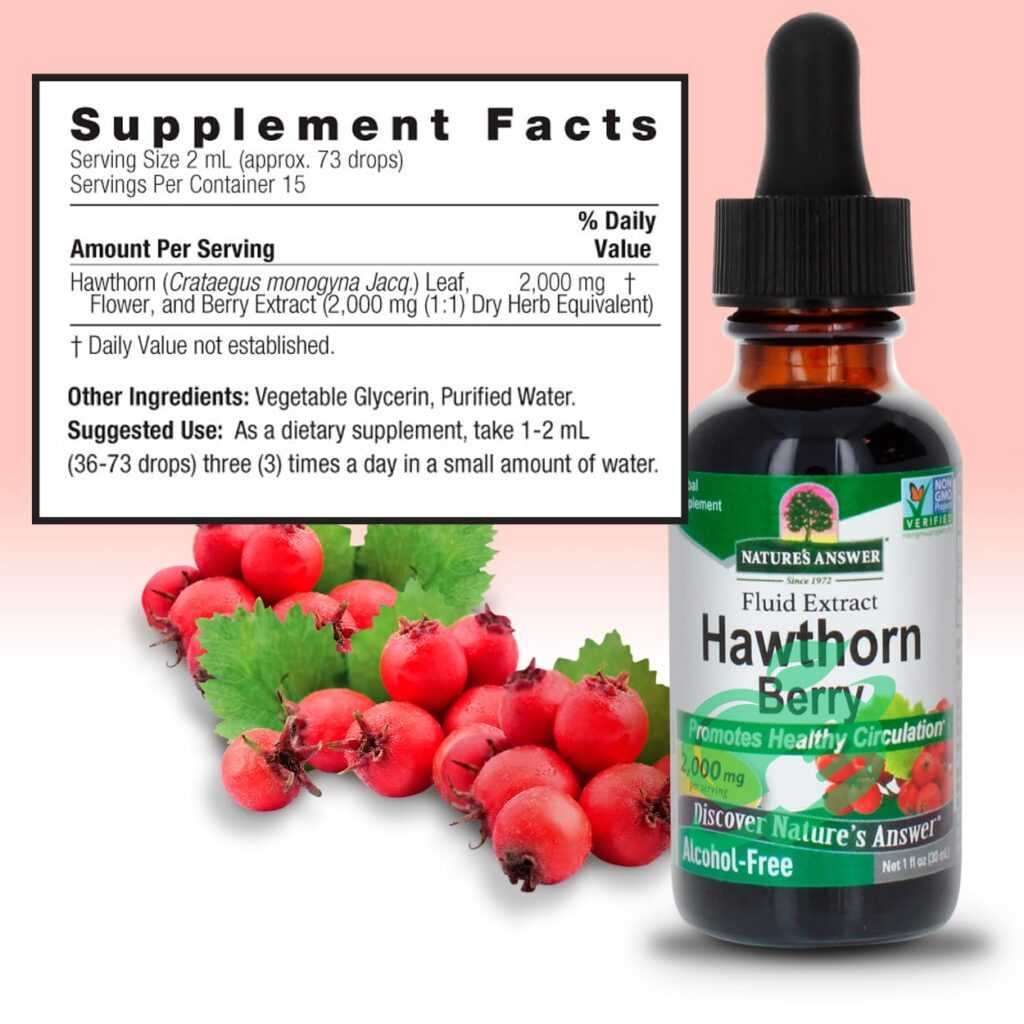
Precautions and Potential Side Effects
Drug Interactions
While hawthorn offers numerous health benefits, it’s essential to be aware of potential precautions and side effects. One significant consideration involves drug interactions. Individuals taking medications should exercise caution, as hawthorn can influence how certain drugs function in the body. For instance, hawthorn may interact with:
- Blood Pressure Medications: It can enhance the effects of these medications, potentially causing blood pressure to drop too low.
- Anticoagulants (Blood Thinners): There is a possibility that hawthorn may increase the risk of bleeding when taken with these drugs.
- Beta-blockers: Combining these with hawthorn may lead to an additive effect, altering heart rate control.
If you’re a regular user of these medications, it’s wise to consult a healthcare provider before incorporating hawthorn into your regimen. Personal experiences reflect the importance of open communication with health professionals; a friend of mine, who is on medication for hypertension, learned this the hard way after experiencing significant fluctuations in blood pressure.
Allergic Reactions
Another key aspect to consider is the possibility of allergic reactions. While hawthorn is generally regarded as safe for most people, some individuals may experience adverse effects. Signs of an allergic reaction can include:
- Skin Rashes or Hives: Indicating sensitivity to the plant.
- Difficulty Breathing: Which can be serious and requires immediate medical attention.
- Gastrointestinal Discomfort: Such as nausea or upset stomach.
If you have a history of allergies to plants in the Rosaceae family (which includes apples, pears, and roses), you might also be sensitive to hawthorn. It’s always important to start with a small dose and monitor your body’s response. In conclusion, while embracing the health benefits of hawthorn, being mindful of potential drug interactions and allergic reactions helps ensure a safe and positive experience. As with any herbal supplement, knowing your own health context and consulting with a healthcare professional paves the way for informed decisions.
Read also : Headaches on Repeat: A Guide to Your Daily Struggle
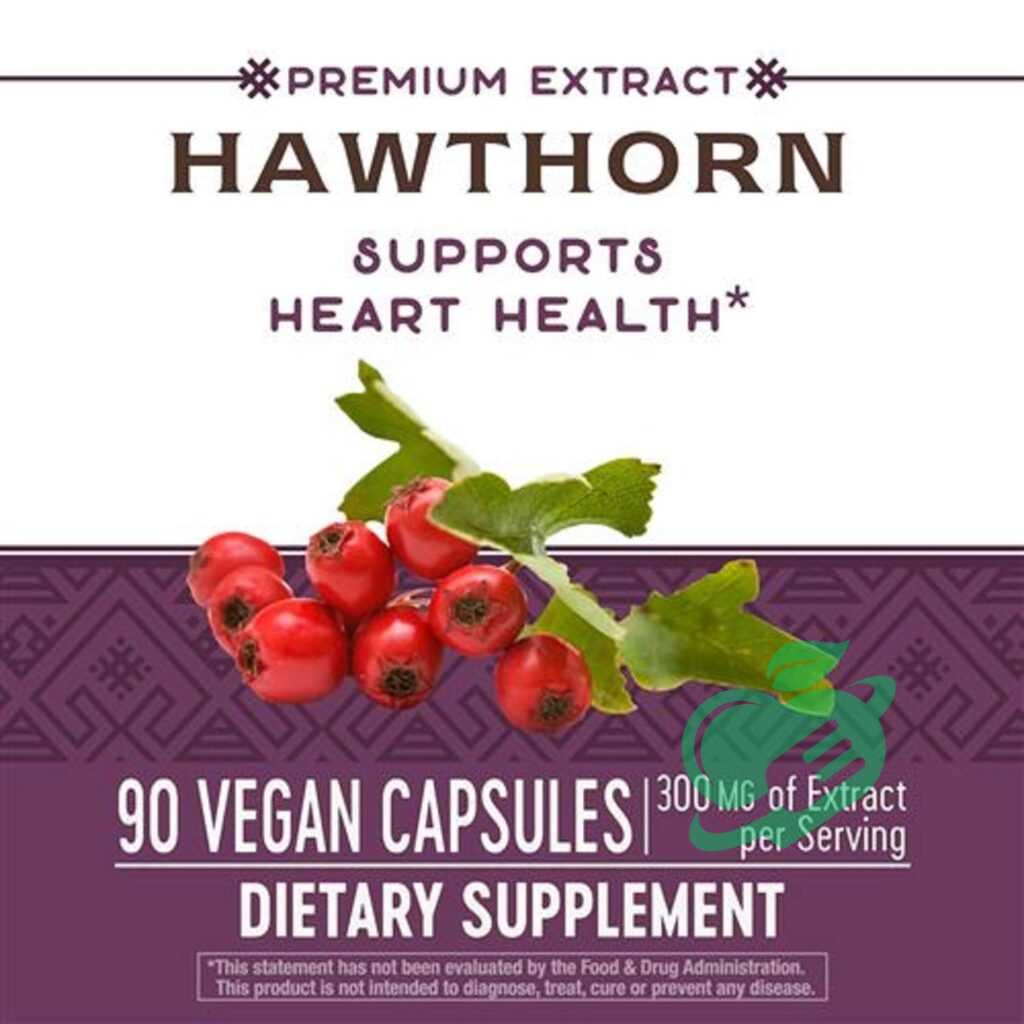
Incorporating Hawthorn into Your Health Regimen
Consultation with Healthcare Providers
When considering incorporating hawthorn into your health regimen, one of the most important steps is to consult with a healthcare provider. These guidelines are especially important for individuals with pre-existing medical conditions or those taking medications. Imagine you’re curious about trying this herb for its cardiovascular benefits — a conversation with your doctor can make a big difference. They can provide personalized advice based on your health history, medications, and lifestyle. In fact, one friend shared how a simple conversation with a nutritionist helped her safely incorporate this herb after overcoming misconceptions about herbal supplements. Key points to discuss during your consultation:
- Current medications: Ensure your healthcare provider knows what you’re taking to avoid potential drug interactions.
- Health goals: Highlight any specific health concerns you want to address, such as blood pressure or heart health.
- Allergies: Discuss any known allergies to plants or herbal ingredients.
By engaging in these conversations, you empower yourself to make informed decisions for your health.
Recommended Dosage
After clearing the path with your healthcare provider, the next step is determining the recommended dosage of hawthorn. While dosages may vary based on the form of consumption—tea, extracts, or tinctures—certain guidelines can help you find the right balance. General recommendations include:
- Hawthorn Tea: Typically, 1-2 cups per day of infusion made from 1-2 teaspoons of dried leaves or flowers.
- Hawthorn Extract: Commonly, 160-900 mg per day in divided doses is suggested; however, it’s vital to follow product instructions.
- Tinctures: A standard dose usually ranges from 20-30 drops, taken three times a day.
Starting slow and assessing how your body responds is essential, allowing you to adjust the dosage if needed. Many users report feeling positive effects within a few weeks, adding hawthorn to their daily routine seamlessly. By consulting with healthcare professionals and sticking to recommended dosages, you can confidently incorporate hawthorn into your health regimen, all while enjoying its many benefits!

Research and Studies on Hawthorn
Clinical Trials
In recent years, this plant has gained momentum in the scientific community, leading to various clinical trials aimed at uncovering its health benefits. Researchers have conducted several studies that primarily focus on its effects on cardiovascular health, given its long-standing reputation as a heart tonic. For example, a well-known clinical trial analyzed 286 patients with heart failure. Participants who took this extract showed significant improvements in heart function and exercise tolerance compared to those who received a placebo. This highlights how traditional herbal remedies can hold their own against modern medicine.
- Participants: Often include individuals with heart-related issues.
- Duration: Trials vary but are typically 4–16 weeks long.
- Outcomes: Many studies report improved heart function and reduced symptoms related to heart disease.
These trials bolster the argument for incorporating hawthorn into health regimens, particularly for those seeking natural remedies.
Evidence-Based Findings
Moving beyond clinical trials, evidence-based findings further support hawthorn’s benefits. Systematic reviews of multiple studies reveal consistent positive outcomes regarding heart health. Key findings include:
- Antioxidant Properties: Studies indicate that hawthorn is rich in flavonoids and polyphenols, which protect the heart by minimizing oxidative stress.
- Blood Pressure Regulation: Multiple studies confirm hawthorn’s ability to aid in lowering blood pressure in individuals with hypertension.
- Safety Profile: Most research supports hawthorn’s safety when taken at recommended dosages, with minimal reported side effects.
A friend of mine decided to delve deeper into the world of hawthorn after reading these findings, ultimately opting for hawthorn supplements alongside her prescribed medications. Her experience highlights how evidence-based research can influence individuals to make proactive health choices. In essence, ongoing research and clinical trials continue to validate hawthorn’s place in health and wellness. By staying informed, individuals can confidently embrace the potential benefits of this remarkable herb, backed by solid evidence.

Conclusion
Recap of Hawthorn Benefits
As we’ve explored throughout this discussion, hawthorn is a remarkable herb with a variety of health benefits that make it worthy of inclusion in any wellness regimen. From its rich history steeped in herbal tradition to the modern scientific validation of its effects, hawthorn stands out, particularly for those interested in supporting cardiovascular health. To recap, some of the key benefits of hawthorn include:
- Cardiovascular Support: Enhances heart function and improves circulation.
- Blood Pressure Regulation: Helps stabilize blood pressure levels in individuals with hypertension.
- Antioxidant Properties: Provides protection against oxidative stress, promoting overall heart health.
- Anti-inflammatory Effects: Reduces inflammation, contributing to a lower risk of chronic diseases.
These benefits showcase how hawthorn may be an essential ally for those focused on heart health and general well-being.
Final Recommendations
If you’re considering incorporating hawthorn into your routine, here are a few recommendations to ensure a positive experience:
- Consult Your Healthcare Provider: Always discuss plans with a medical professional, especially if you’re taking other medications or have underlying health conditions.
- Start Slowly: Begin with a small dosage and monitor how your body responds. This can help identify any allergies or sensitivities.
- Choose Quality Products: Opt for reputed brands that provide standardized extracts to ensure consistent potency and effectiveness.
Ultimately, the journey to better health can be enhanced with hawthorn, but it’s essential to approach it with knowledge and care. By recognizing the power of this ancient herb, individuals can confidently make informed choices that align with their health goals, paving the way for a heart-healthy future. Whether you enjoy its tea, extracts, or tinctures, embracing hawthorn could be a delightful addition to your wellness toolkit!




2 Comments